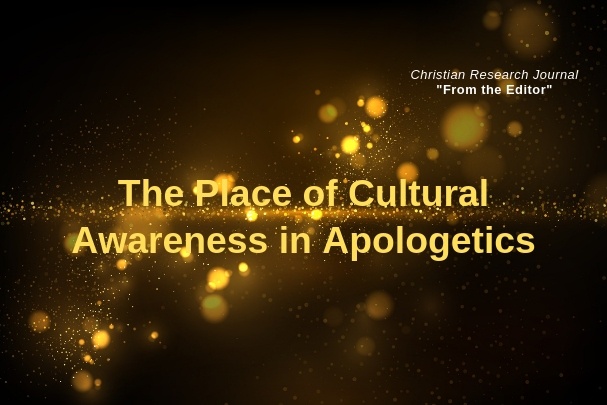
This article first appeared in the Christian Research Journal, volume 40, number 6 (2017). For further information or to subscribe to the Christian Research Journal please click here.
When mentioning hip hop to most Christians, the initial response usually is one of distaste, along with a comment such as, “It really has no relevance to those in the church.” However, over the past forty years, hip hop’s influence has grown to become a major cultural force worldwide. This is quite relevant for the apologist, since pop culture and its ideas greatly influence attitudes and beliefs not only in the United States but also around the world.
Pop culture vehicles such as literature, film, television, and music are effective springboards from which to start conversations about faith and to share the gospel. The JOURNAL therefore seeks to promote Christian awareness and understanding of these media. We have published articles covering classic works of literature, bestselling books, and graphic novels; popular and/or edgy films and TV series, from documentaries to scripted dramas to anime; social media and new technologies; and, most recently, the musical genre of hip hop (with other musical genres hopefully to come). We have expanded our coverage to include free online reviews of current films in theaters, such as our recent review of the film Blade Runner 2049.1
Two years ago at a theology conference, editor-in-chief Elliot Miller providentially sat at a dinner table with several men who had presented academic papers on hip hop and Christianity. Yes, there is much academic work being done on hip hop. The fruit of that meeting is this issue’s article “Spirituality in Modern Hip Hop: The Theology of Kendrick Lamar and Chance the Rapper.”
Perhaps you have never heard of the Grammy-winning artist Kendrick Lamar, but his music is a relevant part of pop culture, and especially so for Christians, since his work is full of spiritual themes. His recent album references Black Hebrew Israelite theology. This religious movement is distinct to the African American community, but its influence extends far beyond it because of curiosity about their beliefs. We previously published an in-depth feature on this group,2 and it is one of the top-five read articles on our website each week!
Conversations, especially with younger adults, will often go further if we are familiar with the latest music trend, TV show, or film and are prepared to offer biblical answers to non-Christian worldviews. Many of these pop culture products become today’s equivalent of “water cooler” moments, such as when videos of Kendrick Lamar’s Grammy award show performance were shared across social media the following day.
The next cultural sensation can be hard to predict, such as earlier this year, when the 1980s novel The Handmaid’s Tale, by Margaret Atwood, was dusted off and made into a Hulu television series. It became the hip TV show to binge watch and went on to receive Emmy awards. In our next issue (vol. 41, no. 1) we will take an in-depth look at The Handmaid’s Tale.
More conventional apologetic topics such as world and new religions, atheism, origins, aberrant Christian teachings, ethical issues, and general apologetics always will be central to this magazine’s focus. However, Christian apologists should also be prepared to negotiate the cultural highways of the twenty-first century, and so we have added cultural apologetics to the JOURNAL’S mix as well. —Melanie Cogdill
Notes:
- John McAteer, “Finitude and Freedom in Blade Runner 2049”; available at http://www.equip.org/article/finitude-freedom-blade-runner-2049/.
- Jimmy Butts, “The Origin and Insufficiency of the Black Hebrew Israelite Movement,” CHRISTIAN RESEARCH JOURNAL 39, 4 (2016): 30–37; available at https://www.equip.org/article/origin-insufficiency-black-hebrew-israelite-movement-article/.








